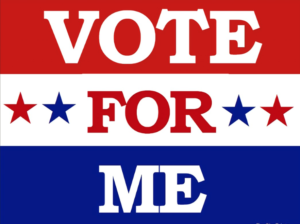

What is this ESG?
What Is ESG Investing?
if you believe Chevron is polluting the earth, you would avoid buying any Chevron stock. You would also not invest in any ETFs or mutual funds holding Chevron stock.
Difference Between ESG Investing And Socially Responsible Investing?
Socially Responsible Investing (SRI).
Sustainable implies that the company is making the best possible use of resources and replenishing any resources. For example, a lumber company would conduct logging sustainably and plant other trees. Most of the overlap between ESG and SRI companies is due to the Environmental and Sustainability aspects.
Responsible means that the company has a social duty to its fellow human beings. We all know that smoking is detrimental to one’s health. Hence any Socially Responsible Investing portfolio will exclude cigarette manufactures like Altria even if they have perfect environmental records.
Impact considers the specific impact a company is having on society.
How Does ESG Investing Work?
ESG Investing works by creating a list of companies based on their ESG scores and investing in companies with a high ESG score.
How Are ESG Scores Calculated?
Companies are ranked based on their environmental, social, governance impacts and assigned a score known as the ESG score.
Environment: What kind of impact does the company have on the environment? Do they create a lot of pollution and release toxic chemicals? Are they efficient with their usage of natural resources? Is there a lot of wastage in their manufacturing process?
Social: How does the company meet its social responsibility. Are they discriminatory in their hiring practices? Do they make marginalized communities feel unwelcome? Are they demonstrating diversity not only among their staff but also among the executive teams? Is their customer satisfaction rating the best? What is the track record of their supplier’s usage of child labor?
Governance: Does the company have transparent leadership in dealings with stakeholders such as customers, workers, communities they operate, and shareholders. Do they communicate and drive positive change?
For example, an ESG portfolio that reduces its exposure to ExxonMobilXOM +0.9% is “less bad.” A portfolio that eliminates the company entirely is better. But a portfolio that adds First SolarFSLR +1.2% in ExxonMobil’s place is positive and sustainable.
The Biden administration, through numerous executive orders, has directed all federal agencies to develop ESG goals, policies, and regulations. This unholy alliance controls nearly every sector of our economy.
Even a casual observer of the news over the past several years has seen the things that form the foundation of our society under attack. The family, parental rights, public education, the Constitution, the free market, free speech, freedom of assembly, man, woman, everything.
Which brings us to Disney. If you do not believe that the goal of ESG is to fundamentally change our society, our individual rights and freedoms, how do you explain Disney’s latest actions? For instance, Disney recently eliminated the greeting “Ladies and Gentlemen, Boys and Girls” at the Magic Kingdom to promote inclusivity. Diversity and inclusivity are very important in the “S” of ESG. Now, who can argue against diversity and inclusivity? Well, the tricky thing about ESG is that the transition also applies to the meaning and intent of words.
In a recent article in the Washington Examiner, Vivek Ramaswamy, author of the bestseller Woke, Inc. pointed to the role that Disney’s three largest shareholders may have played in picking the fight over Florida’s Parental Rights in Education bill. Who are the three largest shareholders in Disney? BlackRock, Vanguard, and State Street—do these names sound familiar? Together, these three firms own 15.3 percent of Disney stock. In a publicly traded company that is a lot.
As BlackRock CEO Larry Fink said, “Behaviors are going to have to change and this is one thing we are asking companies, you have to force behaviors and at BlackRock we are forcing behaviors.”
One thing we do know is that as the ESG movement gains momentum large corporations will be the tool to “force behaviors” and complete the transition of our society. Shareholders in these public companies must be involved and educated. I should add that Blackrock, Vanguard, and State Street are not the actual shareholders of Disney stock. The true owners are the participants in state pension plans, 401(k)s, and individual investors who employ these money management firms to buy, hold, and vote shares with their money.
Several states are taking steps to exercise the voting rights under state pension plans and other state funds. These policymakers and state financial officers should be supported in this effort as they face tremendous pushback. They are accused of “meddling in the free market,” but the idea of a free market has gone the way of Disney’s innocence.
Check out:
More Articles


Don’t Ever Forget What
They Did To Our Children!

Books Requested To Be Removed From
Manatee School Libraries
Manatee School Libraries

Porn Books Removed By the Indian River School District

Manatee County
Administrator Candidates
